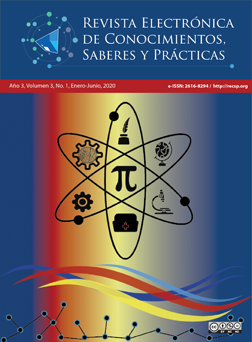Cognitive factors that influence the learning of Spanish as a second language
DOI:
https://doi.org/10.5377/recsp.v3i1.9798Keywords:
Acquisition, Learner, Language learning, Second language teaching, Cognitive Factors, MetacognitionAbstract
In the last decades, one of the most fruitful fields in educational research in the field of ELE has been the tireless search for the main "factors associated with second language learning, especially Spanish as a Foreign Language". From different theoretical perspectives and areas of knowledge, attempts have been made to find out the variables that affect ELE-related teaching and learning processes, what is their relative importance and how they could be improved, and, thus achieve better and greater learning. One of these factors that have been studied is the so-called cognitive factors that, according to the theorists, are intrinsically related to the affective factors, since both the language classroom can contribute to educating students to live more satisfactorily and to be members responsible for society. The cognitive ones do not act separately but interact with each other. For example, intelligence plays a preponderant role against aptitude, cognitive style, metacognition, since it depends, to a great extent, on having a familiarity with words and, at the same time, the ability to reason analytically about the situations of the educational context that arise as a result of the contextual variables or the application of a teaching method. Hence, these factors are determining factors in the ELE teaching process, since learning strategies have the element in which the student actively participates and is involved in learning.
Downloads
2977
Downloads
Published
How to Cite
Issue
Section
License
At the moment in which a work is accepted for publication, it is understood that the author gives the Electronic Magazine of Knowledge and Practice (RECSP) exclusive rights of reproduction, distribution and sale of his manuscript for exploitation in all countries of the world in paper magazine format, as well as in any other magnetic, optical and digital media. The authors will also transfer to RECSP the rights of public communication for its dissemination and exploitation through Intranets, Internet and any wireless portals and devices decided by the publisher, by making available to users for online consultation of its content and its extract. , for printing on paper and / or for downloading and filing, all in the terms and conditions that appear on the website where the work is housed. In turn, the RECSP authorizes the authors of the works published in the journal to offer a copy of these works once published on their personal webs or in any open access repository. Together with this copy, a specific mention of the RECSP must be included, citing the year and the number of the journal in which the article or research note was published and adding, in addition, the link to the RECSP website.

